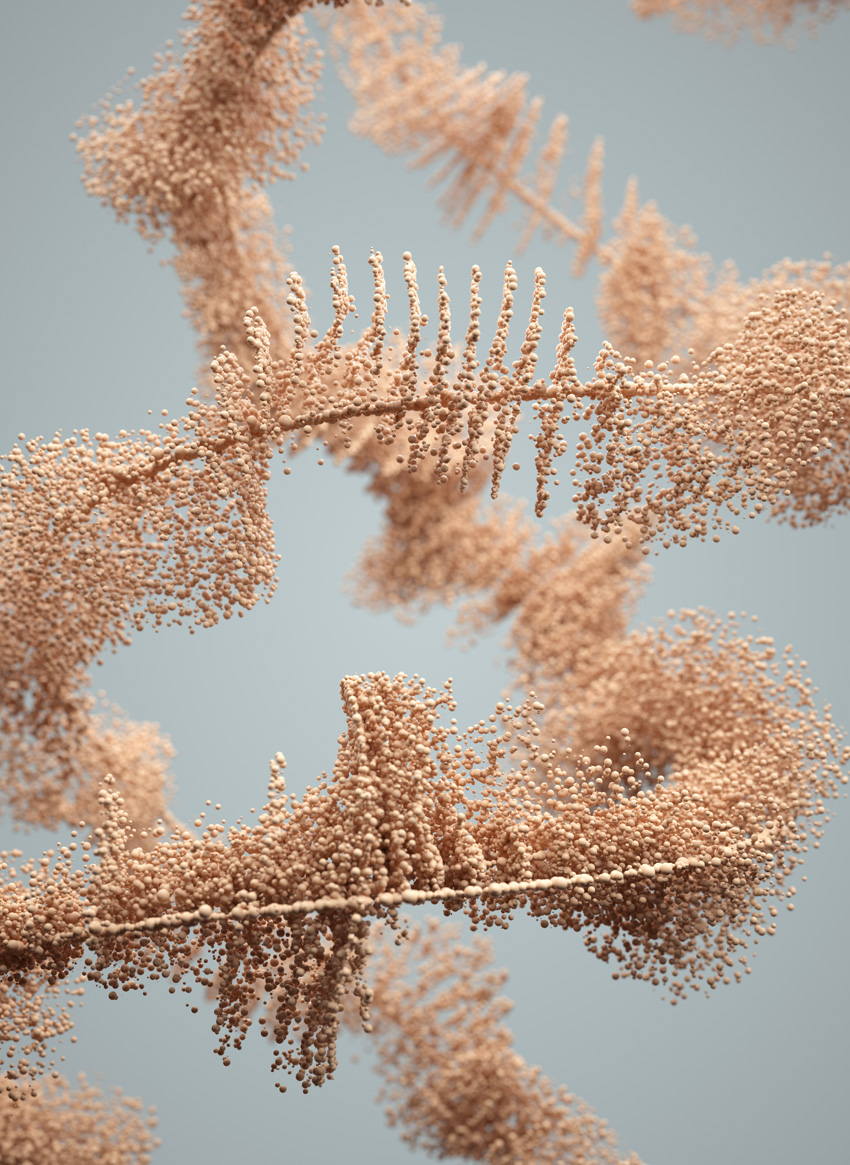We're all very familiar with this saying, uttered at various times in our lives and applied in a wide variety of contexts. But the truth is that, whether we like it or not, this is a principle to be followed and, as far as health is concerned, this is a golden rule.
In a vast ocean of creams, serums, supplements and tips, among many other possible strategies for living longer and better, the answers seem endless. From products whose formula integrates rare ingredients, to homemade antidotes that promise to solve our problems in a few quick steps, there are countless so-called ‘solutions’ available to (almost) manufacture the perfect lifestyle that guarantees us a long and healthy life. As I observe the people around me - especially now, with the recent phenomenon of pre-teens on TikTok carrying out skincare routines with an excessive number of products, overloading skin that is still (evidently) very young - as well as reflecting on my own experience, it's easy to realise how, in this search for the perfect formula, we end up feeling lost in the infinity of options presented, overwhelmed by the astronomical amount of alternatives.
Although the perfect formula may never exist, due to our ever-changing needs - whether it's skincare, where ageing is first noticed, or the prevention of possible diseases - the insatiable search for the latest and most innovative products can become overwhelming. With a multitude of ingredients, each with different purposes and compositions, whose names and functions (unless you're an expert on the subject) remain unknown and difficult to decipher, choosing what really suits your needs and characteristics becomes a real conundrum. However, while some of these products can indeed have a positive impact on our health when used properly, perhaps the answer we are looking for does not lie solely in trying to make up for lost time with treatments applied after the damage caused by the years. Instead, the key may lie in preventive care, which not only helps preserve our youth but also prepares us to face and overcome the challenges that life inevitably brings. When reflecting on what's next in the area of health, the answer becomes clear: we need to take a few steps back in order to move forward in a more solid and conscious way.
To better understand how this prevention can be implemented, we spoke to Dr Augusto Guerreiro, a general practitioner specialising in dermoaesthetics and anti-ageing medicine at Clínica LHR. These were precisely the ideas we explored: looking for the answers in ourselves and our lifestyle, rather than relying solely on remedial measures at a later stage. Hence the birth of longevity medicine. Intended to better understand our own genetics and epigenetics (the part of DNA moulded and conditioned by external and environmental influences), it "aims to (improve) quality of life and prevent age-related diseases", explains Guerreiro. Based on fundamental pillars such as "physical exercise, eating habits, a purpose in life and social connection", as well as hormonal modulation, this approach seeks "above all, to prevent the diseases that appear sooner or later, related to the age of our metabolic reactions that are entering a period of senescence, of ageing". As a truly holistic treatment that encompasses the various dimensions of our well-being, the specialist explains: "Sometimes when we think of ageing, we think a lot about the mind, the face and the skin, but it's much more complex. It has to do with our whole organism and its ageing, from various organs and metabolic processes. That's why longevity medicine isn't just about the outside, it's also about the inside, about our organism and how well it works." An emerging field that offers an alternative to the conventional practices we've developed over the years, Guerreiro explains: "there's a culture that people only go to the doctor when they're ill and this is very common. Obviously we try to prevent it, but longevity medicine extends this part of prevention. And this prevention has to be done many years earlier. The earlier it starts, the better the benefit for patients too."
So is this the best answer for a long and healthy life out of all the ‘recipes’ we've been given? "There is no ideal recipe, but this is in line with what the blue zones are [places on the planet where life expectancy is above average]," says the doctor. "In these areas, the four main pillars are: physical activity - and when we talk about physical activity we don't mean doing a sport, sometimes physical activity is (just) the opposite of being sedentary -; a balanced diet; social connection (friendships and family); and that social purpose which is extremely important. Sometimes family members can be abroad, and it seems that purpose is lost, which is very detrimental to longevity and to the person feeling motivated." Transcending the usual concepts associated with classical medicine by presenting a more global vision of how we should approach the various factors related to our well-being, longevity medicine "is also an integrative medicine. It must consider other health professionals, from psychologists to nutritionists," says Guerreiro. This is not an isolated process; on the contrary, it is a truly comprehensive development which, through a proactive approach, contributes to increasing life expectancy.
In order to implement it, it is necessary to start by understanding the genetics in order to get to know the patient better and their possible propensities for certain diseases. To do this, tests such as the Nutritest, the Telotest and, within traditional medicine, genetic tests are carried out. "Nutritional testing looks at genetic alterations in metabolic diseases which, when related to diet, are the most important, giving us guidance on eating habits and physical activity that patients should have based on these same results, as well as very interesting paths and readings of the genetic propensity for certain diseases." In turn, the Telotest - from the Greek ‘télos’, which means end or limit - measures the length of telomeres, which are "part of our chromosomes, responsible for replicating our DNA and replicating so that our cells are made according to our genetics". The doctor explains: "With age, the ends of these chromosomes tend to get shorter and as this happens, our cells don't replicate under the conditions they should. In other words, they get older and diseases appear. What this test will find out is how long our telomeres are for our age, in other words, whether they are shorter or longer according to age. And it basically gives us our biological age. But what's interesting is that until a while ago it was thought that the length of telomeres could no longer be changed, but that's not true. There have been several studies which show that, through the enzyme telomerase, which is stimulated by physical exercise, healthy eating habits and appropriate supplements and medication, it is possible to lengthen telomeres again. This almost tells us that our biological age can be reversed, which, until relatively recently, was thought not to be possible." Consequently, with discrepancies that can vary between 5 and 10 years, it is essential to start by understanding what our biological age is, so that we can start treatments and adopt habits that are suited to this reality. For a more comprehensive diagnosis, a genetic test is also recommended, which aims to identify the "predisposition to the most varied diseases, from various cancers, metabolic diseases, heart disease and psychiatric illnesses."
Once we understand our body, its condition and its pre-dispositions, it is with specialised analysis that we can begin to create our own ‘special recipe’. "This is where epigenetics comes in, the external and environmental factors that can influence genetics and which are fundamental and varied. Sports, diet, as well as being in contact with toxic substances, stress, sleeping badly, all of these are epigenetic conditions that can ultimately trigger diseases to which we are predisposed." Although most patients begin their journey in longevity medicine with the aim of achieving aesthetic results, these end up being a natural consequence of a focus on health and well-being. "To me it doesn't make sense to treat the skin when the patient may have an unregulated diet, with an inflammatory process that leads to an oxidative process and accelerated ageing. Doing aesthetic treatments is almost hopeless. If we don't stop this oxidative process, if we don't treat the patient's inflammatory process, it doesn't make sense to treat a patient only aesthetically," explains Augusto Guerreiro.
In a world governed by doubts and uncertainties, where our health is undoubtedly one of the biggest concerns, longevity medicine offers a way of understanding it better and finding solutions that suit its specificities. "I think longevity medicine [...] is what's coming next for sure," says the specialist. So before you lose yourself in the endless aisles of skincare or products that promise to strengthen and lighten your hair, think about how changing certain fundamental habits can have a much stronger and longer-lasting impact, not only on your appearance, but also on your quality of life.
Translated from the original on "What's Next?" issue, published December 2024. Full credits and stories in the print issue.
Most popular
.jpg)


Relacionados
.jpg)
Anna Wintour e o presidente da câmara de Milão, Giuseppe Sala, revelam a localização do Vogue World 2026
24 Feb 2026



O que lhe reservam os astros para a semana de 24 de fevereiro a 2 de março
24 Feb 2026



